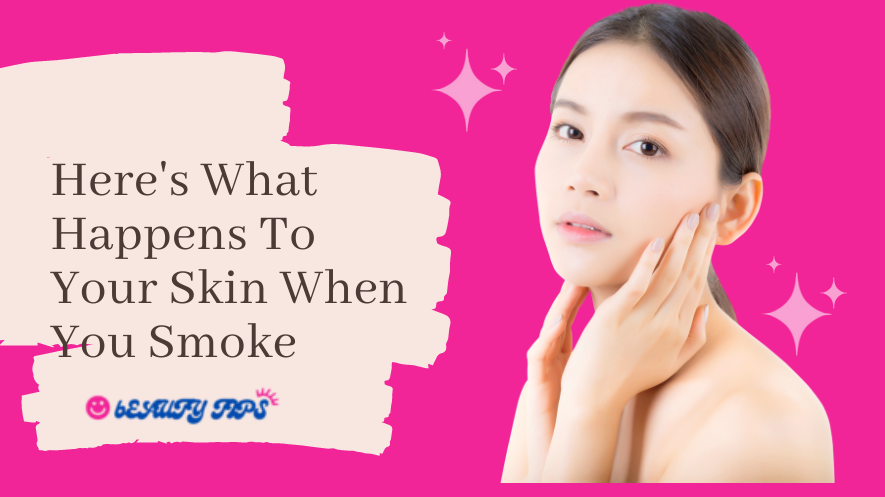Smoking is known to have detrimental effects on various aspects of your health, including your skin care. Here’s an overview of what happens to your skin when you smoke:
- Premature Aging: Smoking accelerates the aging process, leading to premature wrinkles and fine lines. The chemicals in tobacco smoke damage collagen and elastin, which are responsible for maintaining the skin’s elasticity and firmness. As a result, smokers tend to develop more prominent wrinkles, especially around the mouth and eyes.
- Dull and Uneven Complexion: Smoking impairs blood circulation, reducing the flow of oxygen and vital nutrients to the skin. This can result in a dull, uneven complexion and a lackluster appearance. Over time, the skin may also develop a gray or yellowish tint, further diminishing its natural radiance.
- Dryness and Dehydration: Smoking depletes the skin of moisture, leading to dryness and dehydration. The heat from cigarettes, coupled with the chemicals present in smoke, disrupts the skin’s natural barrier function, making it more prone to water loss. Consequently, smokers often experience flaky, rough skin that lacks a healthy glow.
- Poor Wound Healing: The harmful components in cigarettes, such as nicotine and carbon monoxide, hinder the healing process of wounds and skin injuries. Smokers are more likely to experience delayed healing, increased risk of infections, and complications following surgeries or cosmetic procedures.
- Increased Acne and Breakouts: Smoking can exacerbate existing skin conditions, including acne. The toxins in cigarette smoke clog the pores, leading to increased sebum production and inflammation. This can result in more frequent breakouts and difficulty in managing acne effectively.
- Reduced Skin Resilience: Smoking weakens the skin’s ability to defend against environmental aggressors, such as UV radiation. Smokers are more susceptible to sunburn and have an increased risk of developing skin cancers, including squamous cell carcinoma and basal cell carcinoma. Moreover, smoking can worsen existing skin conditions like psoriasis and eczema.
- Prominent Skin Discoloration: The chemicals in tobacco smoke can cause pigmentation irregularities in the skin. Smokers are more likely to develop age spots, uneven skin tone, and patches of hyperpigmentation, particularly on the face and hands.
It’s important to note that these effects are not entirely reversible. However, quitting smoking can significantly improve the health and appearance of your skin care over time. By quitting, you allow your body to heal, promoting better blood circulation, increased collagen production, and overall rejuvenation of the skin. Additionally, adopting a skincare routine that includes adequate hydration, sun protection, and healthy lifestyle choices can further support the recovery of your skin.

